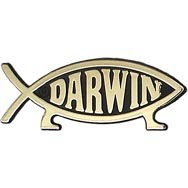God’s Aseity, Self-sufficiency, and Love—A Contradiction?

Two of God’s incommunicable attributes (belonging to God alone) are His aseity (self-existence, John 5:26) and His self-sufficiency (Psm. 50:12-13). His name “El Shaddai” (God all-sufficient, Gen. 17:1, 2) signifies these attributes. Being the great “I Am” (Ex. 3:14), God’s existence is not dependent on anything or anyone, nor does He need anything or anyone.
We also find in Scripture that God is love (1 John 4:8), meaning that He is characterized by love. This poses an interesting question when the previous two perfections are considered. Here’s what I mean: Love requires an object. It’s not possible to love something or someone unless there is something or someone to love. Let’s put this in a simple syllogism (a deductive argument where the conclusion is inferred from the supporting propositions):
God is love. Love needs an object. Therefore, God needs an object for His love.
The argument is valid (it's structured properly) and sound (the premises—supporting propositions—are true). Therefore, by force of logic, the conclusion is inescapable: God needs something. So how does this square with His aseity and self-sufficiency?
The Trinity
The Father loves the Son, the Son loves the Spirit, and vise versa all around, and this from all eternity. This cannot be said of anything else, for all else is created by God (Gen. 1:1). Hence, the doctrine of the Trinity is the only explanation that avoids contradiction.
So next time you speak with a Jehovah’s Witness, Oneness Pentecostal, or anyone else of the non-Trinitarian stripe, give this line of reasoning a whirl.
Labels: Apologetics, Doctrine of God, Tactics






